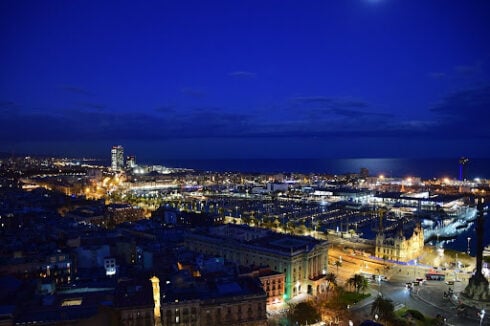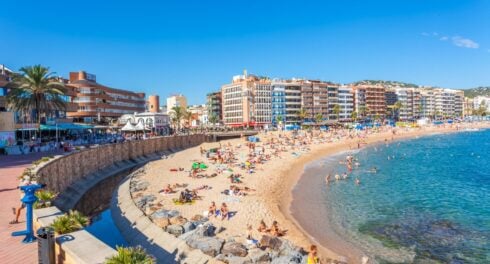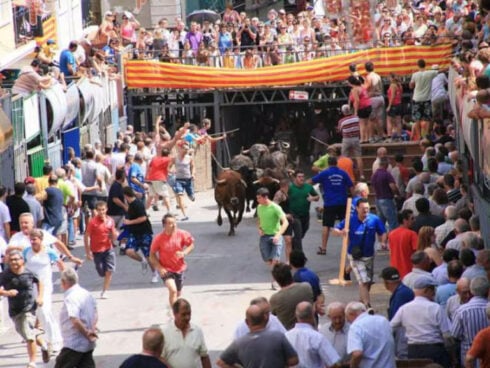SPAIN is a country that offers a vibrant fusion of history, culture, and modernity. From the sun-drenched beaches of the Mediterranean to the charming cobbled streets of its medieval towns, Spain has long been a favourite destination for travellers seeking to experience its unique blend of traditions. However, as tourism continues to grow, more visitors are looking beyond the typical tourist attractions and striving to immerse themselves in Spain’s deep-rooted customs, traditions, and lifestyle. Here’s how travellers are fully embracing Spain’s rich cultural heritage in authentic ways.
Embracing Spanish Gastronomy
One of the most beloved aspects of Spanish culture is its gastronomy, and for many travellers, tasting traditional Spanish food is an essential part of their cultural immersion. Spain’s culinary diversity, from tapas to paella, reflects the country’s regions and history. Visitors are increasingly opting to go beyond the typical tourist menu and dive into the heart of Spanish cuisine.
Tapas tours are a great way for travellers to explore local flavours. In cities like Seville or Madrid, visitors hop between small taverns to sample bite-sized portions of dishes that range from patatas bravas (crispy potatoes with a spicy sauce) to jamón ibérico (Iberian ham). Some tourists even engage in cooking classes where they learn to prepare dishes like paella or tortilla española (Spanish omelette), gaining an insight into the skills and ingredients that define Spanish cuisine.
Immersing in Spain’s Sports Culture
Spain’s love for sports is deeply embedded in its culture, and travellers are increasingly embracing this passion by attending live events or engaging with the local sports scene. Football is the undisputed favourite, with visitors flocking to iconic matches like El Clásico between Real Madrid and FC Barcelona, experiencing the electric atmosphere of La Liga stadiums.
Beyond the football pitch, Spain also offers exciting opportunities to watch basketball, tennis, and cycling events, with major tournaments like the Madrid Open and the Vuelta a España drawing international crowds. For many visitors, the experience doesn’t stop at just watching the games; sports betting has become a popular way to engage further. Visitors from places like the US, Canada, and the UK often place wagers while watching games. Online platforms make it easy for travellers to wager on everything from football matches to tennis tournaments, and the best UK betting sites often offer not only a wide range of games to wager on but also lucrative bonus offers that punters can use to stretch their budget.
Participating in Local Festivals
Festivals are integral to Spanish life, and they offer travellers a chance to truly immerse themselves in the heart of Spanish culture. The Fiesta de San Fermín in Pamplona, famously known for its running of the bulls, is one of the most iconic Spanish festivals. However, many visitors are also drawn to the lesser-known but equally captivating events that take place year-round.
For example, La Tomatina in Buñol allows tourists to partake in an exhilarating tomato fight, an experience that perfectly captures Spain’s sense of fun and community. Semana Santa (Holy Week) in cities like Seville and Málaga provides an in-depth look into the country’s religious traditions through impressive processions, religious icons, and hauntingly beautiful music.
Learning the Spanish Language
Immersing oneself in Spain’s culture often involves learning the language. While many Spaniards speak English, especially in tourist areas, visitors who make an effort to speak Spanish are often met with warmth and appreciation. Understanding the language allows travellers to engage more meaningfully with locals, whether it’s ordering food, asking for directions, or simply having a conversation with a fellow diner.
Many travellers are now opting for language immersion programmes that offer full-time Spanish lessons while staying with local families or living in small towns. These immersive experiences go beyond the classroom, giving visitors a chance to practice their new language skills in real-world settings, whether in local cafes, markets, or neighbourhood gatherings.
Moreover, language immersion enables tourists to better appreciate Spanish literature, songs, and films, which often reflect the nuances of Spain’s history and regional diversity. Knowing a few phrases can go a long way in fostering connections and making a traveller feel more integrated into the local community.
Exploring Spain’s Regional Diversity
Spain’s regional diversity is another key aspect of its culture that many travellers are eager to explore. Each region has its own distinct language, customs, food, and traditions, which gives Spain a multifaceted cultural identity. Tourists are increasingly seeking out off-the-beaten-path destinations, venturing beyond the well-known cities like Madrid, Barcelona, and Seville, to experience more regional and authentic Spain.
In Catalonia, for instance, visitors might attend a castell (human tower) competition, where local teams build impressive human structures, a tradition rooted in the region’s history. Meanwhile, in the Basque Country, travellers may be drawn to the Pintxos culture—small tapas-style dishes served in bars, paired with a local glass of Txakoli (a sparkling white wine). Visitors can also take part in wine tours in La Rioja, learning about the country’s winemaking heritage and tasting some of the world’s finest wines.
Each region offers its own interpretation of Spanish culture, and travellers who venture off the typical tourist trail gain a richer, more diverse understanding of Spain’s identity.
Immersing in Spain’s Architecture and History
Spain’s architectural wonders, from the Alhambra in Granada to the Sagrada Familia in Barcelona, draw millions of visitors each year. But many travellers are now going beyond simply visiting these landmarks—they are delving into the history and stories behind them. Guided tours and historical walking tours allow tourists to understand the significance of these structures in the context of Spain’s cultural evolution.
Many visitors are also exploring Spain’s rural architecture, such as the quaint white-washed villages of Andalusia or the stone houses of Galicia, where traditions have remained largely unchanged for centuries. These experiences give travellers a glimpse into Spain’s past and allow them to appreciate the harmony between its history and modern life.
Conclusion
As travellers continue to seek deeper and more authentic experiences, many are embracing the unique aspects of Spanish traditions and lifestyles in ways that go beyond the typical tourist path. From exploring regional festivals and diving into the culinary landscape to learning the language and engaging in traditional activities, visitors are gaining a richer understanding of Spain’s vibrant culture. These immersive experiences not only create lasting memories but also foster a deeper connection between the traveller and the country, making each visit to Spain a truly unforgettable journey.
Click here to read more Gaming News from The Olive Press.








